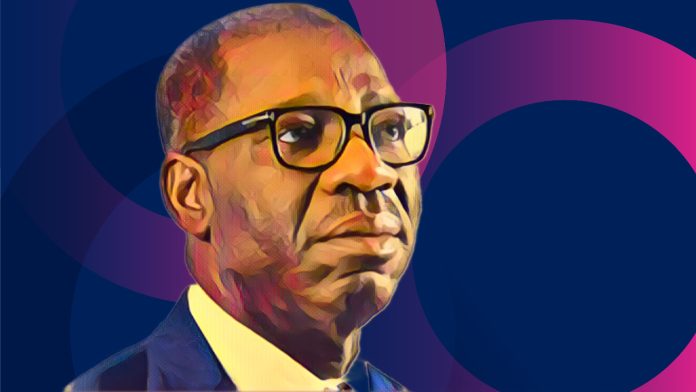As the September 21 governorship election approaches, Edo State Governor Godwin Obaseki has set an ambitious goal for his home turf: securing at least 40,000 votes from the Oredo Local Government Area. His strategy is Leveraging the solid track record of his administration over the past seven years, a period marked by significant advancements in public infrastructure, healthcare, education, and sports.
Obaseki’s campaign kicked off with the inauguration of over 200 members of the Peoples Democratic Party (PDP) Campaign Committee in Oredo. At the event, held at the party’s secretariat in Benin City, the governor expressed his administration’s commitment to what he termed “politics of evidence and achievement,” setting a clear distinction from what he described as the opposition’s reliance on “lies and propaganda.”
The governor emphasized Oredo’s pivotal role in the state’s political landscape, describing it as the barometer of politics in Edo State. By setting such a high vote target in Oredo, Obaseki is not just aiming for a personal victory but also setting a precedent for future electoral engagements in the region.
Voter Engagement and Campaign Dynamics
In his address, Obaseki outlined a multi-faceted approach to increase voter turnout, which has been notably low in past elections. His strategy involves simplifying the voting process, especially with the introduction of new voting units by the Independent National Electoral Commission (INEC). Many residents, according to the governor, are unaware of their voting units, a challenge his campaign aims to rectify.
Moreover, the governor stressed the importance of engaging young voters, a demographic he believes is crucial for the sustained growth and modernization of Edo State. Part of the campaign’s efforts include ensuring that young people, particularly those without Permanent Voter Cards (PVCs), are registered and well-informed about the electoral process.
Obaseki also took the opportunity to introduce his preferred successor, Dr. Asue Ighodalo, presenting him as an experienced candidate well-equipped to continue the state’s development trajectory. This introduction not only solidifies Ighodalo’s position but also reassures voters that the current administration’s policies and projects will continue seamlessly.
Future Plans and Development Trajectory
Looking beyond the immediate election, Governor Obaseki spoke about a 30-year development plan designed to guide Edo State’s growth. This long-term vision includes comprehensive infrastructure projects, educational reforms, and healthcare improvements that are intended to transform the state into a leading economic and cultural hub in Nigeria.
Obaseki’s approach combines immediate electoral objectives with long-term developmental goals, framing the upcoming election as not just a political contest but as a referendum on the future direction of the state. By focusing on his administration’s achievements and plans, he aims to foster a sense of continuity, stability, and progress among the electorate.
As the campaign moves forward, the governor pledged full support to the newly inaugurated campaign committee, emphasizing the need for a unified effort to secure a landslide victory. This strategy reflects a broader trend in Nigerian politics where electoral success is increasingly tied to demonstrable governance achievements and proactive voter engagement strategies.
Source: Vanguard



